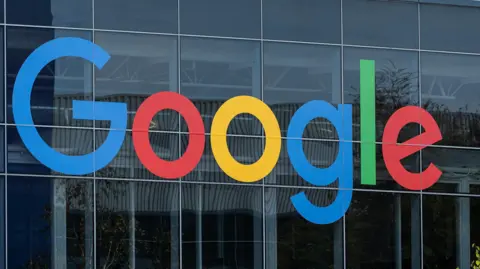In a significant move reflecting ongoing concerns about workplace equity, Google has settled a racial bias lawsuit for $28 million (£21.5 million). The lawsuit, which alleged that white and Asian employees received preferential treatment with regards to pay and career opportunities compared to employees from other ethnic backgrounds, was publicly addressed by the tech giant. Although Google has announced that a resolution has been achieved, the company continues to deny the allegations put forth in the lawsuit.
The legal battle was initiated in 2021 by Ana Cantu, a former employee of Google. Cantu’s claims highlighted that individuals from Hispanic, Latino, Native American, and other backgrounds were often hired at lower salaries and job levels compared to their white and Asian colleagues. The case specifically points out these systemic discrepancies, particularly focusing on starting pay, which was supposedly influenced by prior salaries, thereby perpetuating historical inequities based on race and ethnicity.
Currently, the settlement in question has received preliminary approval from Judge Charles Adams of the Santa Clara County Superior Court of California. The case seeks to represent a class of at least 6,632 individuals who worked for Google between February 15, 2018, and December 31, 2024. Notably, the basis of the discrimination claims relied on an internal document that was leaked, which ostensibly indicated that employees from specific ethnic groups reported being compensated less than their counterparts for similar roles.
The case underscores the importance of transparency and collective action among employees aiming to identify and address potential pay inequities. Cathy Coble, an attorney for the claimants, commended the courage displayed by both diverse individuals and ally Googlers who came forward with their experiences and shared crucial data with the media. She emphasized that without such active participation from employees, issues regarding suspected pay inequity could easily remain hidden.
Despite the settlement and the acknowledgment of its implications, Google maintains a firm stance against the allegations. A company spokesperson asserted that while a resolution was reached, they continue to disagree with the claims of discrimination, expressing their commitment to equitable practices in hiring, compensation, and employee leveling. This response highlights a broader discourse on corporate accountability, especially regarding diversity, equity, and inclusion (DEI) initiatives.
Recently, there has been a notable trend among major U.S. corporations, including other household names such as Meta, Amazon, Pepsi, McDonald’s, and Walmart, in which commitments to DEI principles in recruitment and operational policies are being revisited or even discarded. This raises critical questions about the future of these initiatives amidst a shifting political landscape. Notably, there have been efforts by political figures, including former President Donald Trump and his supporters, who have openly criticized and sought to eliminate DEI programs, further complicating the narrative of workplace diversity and equality.
As Google navigates these complex societal and organizational challenges, the outcome of this case could serve as a crucial learning point for the tech industry and beyond, signaling the importance of continued dialogue and action towards equitable employment practices. The preliminary approval of the $28 million settlement marks not just a financial transaction, but a moment of recognition for the struggles faced by employees of diverse backgrounds within one of the world’s largest tech companies. The ongoing evolution of workplace policies, especially regarding equity, will undoubtedly remain in sharp focus as companies strive to align with broader societal values of fairness and inclusion.



